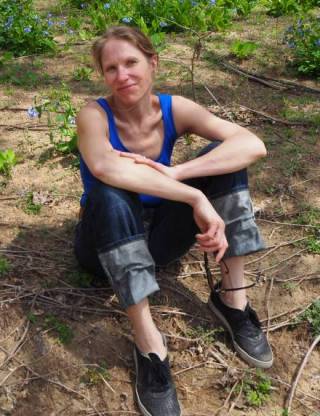 Kirsi Pauliina Kallio
Kirsi Pauliina Kallio
kirsipauliina.kallio(at)tuni.fi
Professor of Environmental Pedagogy and Education | Faculty of Education and Culture | Tampere University
Current and recent research and development projects: Ethical Sustainability Competences in Work Life and Higher Education (KESTO, 2021-2023), The Politics of Embodied Encounters in Asylum Seeking (POEMS, Academy of Finland, 2021-2025), Urban Cycling Citizen Science (ECIU SMART-ER, 2022-2023), Escape from the consumption society (2022-2023), The civic potential of climate mobility (HUMANE–CLIMATE, Academy of Finland, 2022-2026), At the Margins of the Sustainability Transformation (2023-2024), Sustainability and climate education to schools in practice (2023-), Learning to run the nature school at South Ostrobothnia (2022-2024). She was vice-chair of the The Finnish Nature Panel (2021-2023) and lead the Panel’s project on Knowledge-based environmental citizenship (2024).
“My research interests form around the human subject as a constantly developing political being with capacities to act, and relational political space that actualizes contextually in the form of communities and societies with various scalar dimensions. My current interdisciplinary work focuses on refugeeness (as an experienced condition), humanitarian border (as a topological constellation), relational age (from the perspective of youthful political agency and intersubjective spatial socialization) and lived citizenship (in the city-regional scale and as environmental agency). I am also actively involved in development projects where the perspective of Positive Recognition, based on co-creative research, is put into practice and further developed in different professional context. I edit the geographical journal Fennia, an open access peer review publication by the Geographical Society of Finland. The journal is affiliated with the Versus forum that publishes popular research-inspired articles and discussions. I also edit the book reviews section in the journal Space & Polity.”
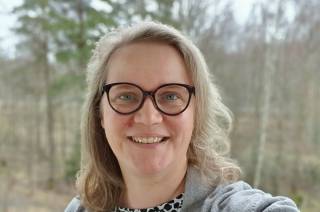 Essi Aarnio-Linnanvuori
Essi Aarnio-Linnanvuori
essi.aarnio-linnanvuori(at)tuni.fi
University Lecturer of Environmental Pedagogy | Faculty of Education and Culture | Tampere University
Current and recent research projects: Scouts as contributors to citizen science (SPRKA 2023), Scouts and school children as contributors to citizen science (SPARKA2 2024), Challenging the Climate Crisis: Children’s Agency to Tackle Policy Underpinned by Learning for Transformation (CCC-CATAPULT), The civic potential of climate mobility (HUMANE–CLIMATE)
“As a researcher and teacher, I am interested in developing interdisciplinary and holistic environmental education that takes into account the learner’s identity, values and worldview. My work also includes teaching environmental studies and science education didactics in class teacher training. In recent research projects, I have studied young people’s climate agency, especially the gap between values and action and ways to bridge the gap, as well as opportunities to support children’s and young people’s experiences of environmental citizenship through participation in citizen science. I am broadly interested in environmental and sustainability education and strive to promote its implementation for different target groups in formal, informal and non-formal education in various ways. To promote this, I serve as the chair of the Interdisciplinary Research Network for Environmental and Sustainability Education SIRENE.”
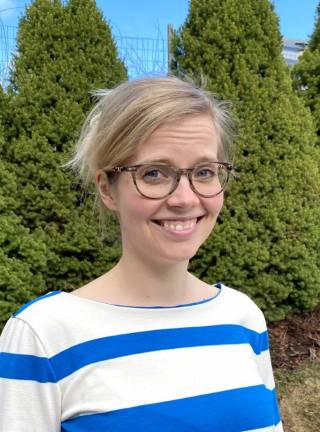 Inkeri Rissanen
Inkeri Rissanen
inkeri.rissanen(at)tuni.fi
Senior University Lecturer of Multicultural Education | Faculty of Education and Culture | University of Tampere
Current and recent research projects: Developing Teachers’ Mindsets for Transformation: Fostering Cultural Change Towards Sustainability (TeacherMind) (2024-2028), Challenging the Climate Crisis: Children’s Agency to Tackle Policy Underpinned by Learning for Transformation (CCC-CATAPULT) (2020-2023), Implicit theories of malleability as the core of teachers’ intercultural competence (CORE) (2019-2022)
“My research and teaching connects to the fields of intercultural education, sustainability education, and teacher education. In recent years, I have been particularly interested in developing approaches that draw from (social) psychological research on lay theories of malleability to advance education that fosters social, cultural, and ecological sustainability. Developing school pedagogy and teacher education in this area also requires basic research on how beliefs about the malleability of individuals, groups, and cultures influence teachers’ pedagogical thinking and actions. In the TeacherMind project, we investigate the core features of teachers’ mindsets for transformation, and how these can be influenced to support teachers’ readiness to act as agents of cultural transformation for sustainability. I co-lead the research group Multiculturalism, Transnationalism and Transformation in Education together with Mervi Kaukko; research in this group is focused at questions of diversity, equity and education in individual, collective, institutional and societal level.”
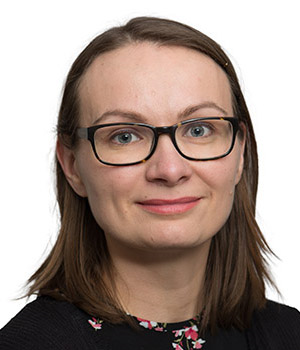
Vilhelmiina Vainikka
vilhelmiina.vainikka(at)tuni.fi
Postdoctoral Researcher | Faculty of Education and Culture | University of Tampere
Current research and development projects: The Civic Potential of Climate Mobility (HUMANE-CLIMATE, 2022–2026), At the Margins of the Sustainability Transformation
“I am a human geographer and work as a post doctoral research fellow in the Academy of Finland funded The civic potential of climate mobility (HUMANE-CLIMATE) research project led by Professor Kirsi Pauliina Kallio. I have previously worked on discourses of mass tourism, natural force rhetorics and massification by media in tourist-refugee nexus in crisis, culturally sensitive tourism planning, suburban-aware development and mass tourist portrayals in the art of Erika Adamsson. My long-term interest is the individual-mass(es) continuum in several contexts. Alongside research, I also have extensive experience of university teaching and supervising from Finland (University of Turku, University of Oulu, University of Lapland) and Denmark (Aalborg university). Before my academic career I worked as a part-time travel agent. My current research interests are concerned about different challenges such as climate change and traumas, their contextual understanding and how to promote decolonizing pedagogy in education and co-living in climate mobilities with art-based methods or empathy. I am very interested in neurodiversity, intersectionality, interdisciplinary collaboration and research. I am affiliated to Space and Political Agency Research Group (SPARG), Spatial Socialization and Environmental Citizenship Research Collective (SPECS) and Research Network for Justice, Space and Society (JUSTSPACES).”
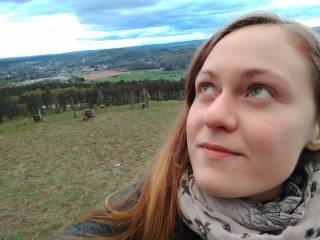 Gintarė Kudžmaitė
Gintarė Kudžmaitė
gintare.kudzmaite(at)tuni.fi
Postdoctoral Researcher | Faculty of Management and Business | Tampere University
Current research projects: The Politics of Embodied Encounters in Asylum Seeking (POEMS), The Civic Potential of Climate Mobility (HUMANE–CLIMATE)
“My research focuses on migration and borders, and their social, historic, ethnolinguistic, socioeconomic and political aspects. Within the POEMS project, I analyse European policy documents, inquiring into the rhetoric of the EU and the portrayals of migrants within the EU’s political agendas on migration and asylum. In the HUMANE-CLIMATE research, I am also responsible for the policy analysis, looking at the European documents and strategies related to climate mobility. I investigate the (embodied) encounters between the European migratory regimes and migrants, asylum seekers and refugees, and ask whether migrants can retain their agency within these contexts. In my past and present research, I have been also particularly engaged with the question of how hegemonic (state) migration and border narratives are met (challenged and questioned, but also sometimes accepted and appropriated) by those with lived experiences of moving and settling across borders. I am also part of the SPARG research group.”
 Adriana Calvo Viota
Adriana Calvo Viota
adriana.calvoviota@tuni.fi
Postdoctoral research fellow | Faculty of Education and Culture | Tampere University
Current research projects: The Civic Potential of Climate Mobility (HUMANE–CLIMATE)
“I am a journalist and obtained my international PhD in Communication from the University of Deusto (Spain) in 2024. My thesis focused on how irregular migrant women develop digital communication strategies to cope with everyday life challenges in the destination country while being oppressed due to multiple intersections such as race, gender, and citizenship status. In recent years, I have worked on various studies related to communication, gender, and migration studies, such as the inclusion of e-migrant populations, the use of WhatsApp groups by migrant women as a support tool during their migration process, and the representation and involvement of migrant women in feminist mobilizations. More recently, I have been examining how online hate speech and misogyny on social media target female political leaders, and the role of higher education systems and policymakers in integrating refugees and asylum seekers in the European Union from a gender perspective. Currently, I am working as a postdoctoral researcher at Tampere University in the HUMANE-CLIMATE project, where I am analyzing how European policies respond to climate (im)mobilities.”
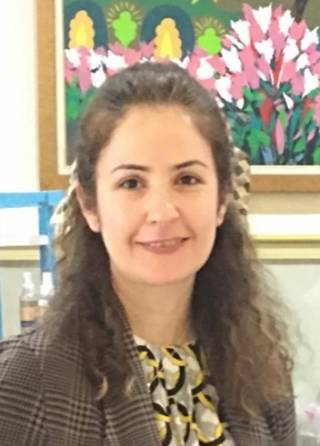 Golaleh Makrooni
Golaleh Makrooni
golaleh.makrooni@tuni.fi
Postdoctoral research fellow, Faculty of Education and Culture, Tampere University
Current research project: Arts-based climate change education through digitalization (DIGI-CLIMART)
“I have a PhD in Education from Tampere University and have developed a special interest in exploring the dynamics of education in the context of migration. My doctoral research focused on the educational journey of first-generation immigrant students in higher education in Finland. The results of my research highlight the great importance of repositioning processes in intercultural contexts through continuous negotiations with self, others, and context. In addition to my doctoral research, I’ve been actively involved in various projects, such as developing a cultural mentoring model to boost immigrant employability in Finland Komeetta. Drawing on my diverse academic interests and teaching experience, I am also involved in curriculum, pedagogical studies, and climate change education. Since 2021, together with Prof. Eero Ropo I have been the coordinator and teacher of an international online course funded by UniPID (Finnish Universities Partnership for Sustainable Development) and a TFK (Team Finland Knowledge) project Curriculum Development for Climate Change Education in Global South. I have also been collaborating with the Environmental Citizenship Research Collective (SPECS) since 2023. More recently, I have been working part-time as a researcher with my colleague Vilhelmiina Vainikka on developing a Kone Foundation application, building on our previous work and the small grant we received from DigiSus platform at TAU. The work is forcing on “Arts-based climate change education through digitalization.”
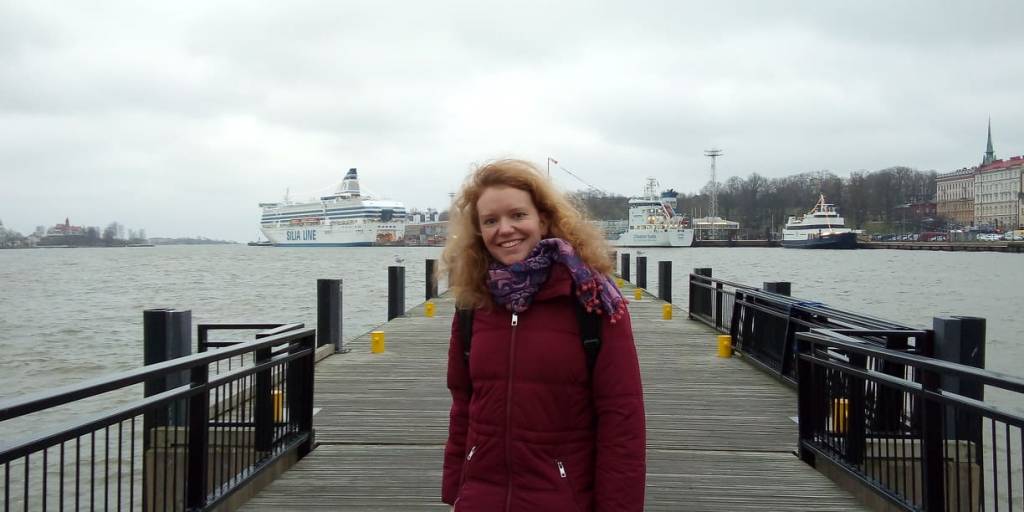 Aila Spathopoulou
Aila Spathopoulou
aila.spathopoulou(at)stirling.ac.uk
Lecturer in Criminology and Sociology| Department of Sociology, Social Policy and Criminology |Stirling University, UK.
Current research projects: Exposing and Combating the Political Economy of Border Violence in the Aegean, Bordering and governmentality around the Greek islands, Refugee or Return: Changing spatio-temporalities of European refugee asylum, The Civic Potential of Climate Mobility (HUMANE–CLIMATE)
“I am a Lecturer in Criminology and Sociology at the University of Stirling. In February 2025, I completed a Leverhulme Early Career Fellowship (2022-2025) in Geography at Durham University working on issues of borders and processes of bordering, geographies of asylum, detention and return and creative methodologies. I completed my PhD in 2019 at the department of Geography at King’s College University of London and have held research postdocs at the department of Politics and International Relations at Goldsmiths University of London and Space and Political Agency Group at Tampere University (visiting researcher). I am, also, co-coordinator of the Mobility: Borders and Migration Research Area at the Feminist Autonomous Centre for Research in Athens. My research interests are oriented around five main areas: 1) Processes of bordering: The way in which the border shapes subjectivities, how we relate to one another and to our own self. The interlinks between border violence, addiction, self-harm and abuse. How border violence draws on scripts of gendered violence. 2) ‘Floating hotspots’: How ferries, ships, boats are used within ‘migration management’ (reception, asylum, detention and deportation procedures) across Europe (Greece and Estonia) and Scotland (UK). 3) Politics of refusals and location. 4) Decolonial education. 5) Feminist methodologies, creative methods, the use of fiction and auto-ethnography as a methodological approach.”
 Kimmo Härmä
Kimmo Härmä
kimmo.harma(at)tuni.fi
Lecturer, Researcher | Faculty of Education and Culture | University of Tampere
Current research project: The civic potential of climate mobility (HUMANE-CLIMATE, 2022–2026)
“I work at Tampere University in the Faculty of Education and Culture, both in the Kasvu unit and at the upper secondary school of Normaalikoulu. In the Kasvu unit, my duties include teaching qualitative research methods and supervising bachelor’s theses on environmental and art education. In addition, I am a researcher in the HUMANE-CLIMATE project, which studies the development of climate refugee education. At the upper secondary school of Normaalikoulu, I teach geography and biology courses, from which research material is simultaneously collected for the aforementioned research project. My most important research interests include critical thinking, argumentation skills, and conceptualizing broad entities, which in environmental issues mean the coordination of nature and all human and societal activity. I also handled these topics in my dissertation and in the ARGEO project based on that. In addition to science, I see the cultural and view-of-life point of view as particularly essential as part of understanding environmental issues and people’s personal environmental identity. This is highly important, because without a personal relationship, a deeper understanding and genuine actions for the cause cannot arise.”
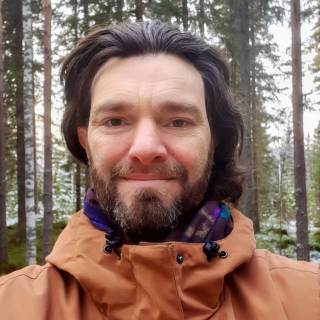 Nicholas Haswell
Nicholas Haswell
nicholas.haswell(at)tuni.fi
Doctoral Researcher | Faculty of Education and Culture | Tampere University
Current research projects: Drawing Together: Relational Wellbeing in the lives of young refugees in Finland, Norway and the UK, HUMANE–CLIMATE
“Nick Haswell works as a researcher at Tampere University, working on several projects concerning the education and wellbeing of children and adults with refugee and asylum-seeking backgrounds. As an experienced artist and trained art teacher, he is interested in the ways that expressive arts and story-making can be used in research contexts. He is currently pursuing doctoral studies in Tampere University with the aim to investigate the nexus between wellbeing and environmental relations in the lives of young refugees in Finland, Norway and Scotland. In addition to research activities, Nick co-runs a creative working group, We Who Smile, which organises art projects for children in reception centres around the Finland (We Who Smile website).”
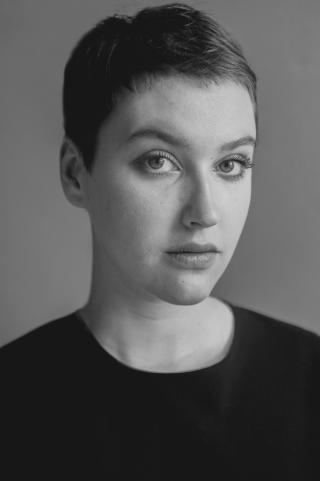 Essi Nisonen
Essi Nisonen
essi.nisonen(at)tuni.fi
Doctoral Researcher, Faculty of Built Environment, Tampere University
Current research project: PhD on the development of architecture education (ARCH4CHANGE, 2020-2023 Erasmus+, T-Winning Spaces 2035 – Winning Spatial Solutions for Future Work)
“I’m an architect currently working at Tampere University as a teacher in sustainable housing design and a doctoral researcher. I’m interested in developing architecture education through perspectives of environmental education, and especially interested in exploring paths for integrating empathy and care as starting points of architects’ professional identity and praxis. My doctoral research focuses on the (professional) values and cultures transmitted through architecture education and their connection to architects’ ability to work within planetary boundaries and to promote eco-social justice. The aim of my doctoral research is to provide approaches for the development of architecture education especially in the contexts of the Anthropocene and the Capitalocene. I’m also a member of the ASUTUT research group.”
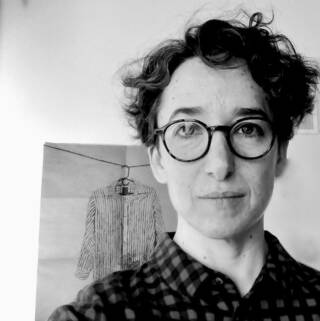 María Villa Largacha
María Villa Largacha
maria.villalargacha(at)tuni.fi
Doctoral Researcher | Faculty of Education and Culture | Tampere University
Current research projects: Cultivating Coexistence: On the Conditions of Possibility of Radical Unlearning through Embodied Experience
“I am an educator and independent curator. I have been developing research on experimental learning environments for multicultural groups, curatorial strategies, and education interventions in art venues. My academic background is in Philosophy (BA, MA) and Curating and Contemporary Art (MA). I have worked extensively with public culture and art programs in Colombia as editor, facilitator, and program coordinator. My current research focuses on an experimental method I have developed in recent years, the Embodied Knowledge Workshop, where critical pedagogy promoting coexistence, personal transformation, and agency intersects artistic practices and embodied experimentation. I am invested in designing spaces for discussion, collaboration, sustainability, and social change through participatory methods and feminist postcolonial approaches. I teach creative writing and curatorial practices at MA level in Helsinki and I am the co-curator for the New Performance Turku Biennale.“
 Anne Leppäjärvi
Anne Leppäjärvi
anne.leppajarvi(at)tuni.fi
Doctoral Researcher | Faculty of Education and Culture | Tampere University
Current research project: Doctoral thesis focused on empathetic understanding as a professional competence in journalism (2024-2026, The Media Industry Research Foundation of Finland)
“My research interest focuses on the question of pluralism in journalism, particularly its role in fostering social resilience, while also examining the resilience of individual journalists within this framework. I aim to develop a structured approach grounded in hermeneutic empathetic understanding as a tool for the journalistic process. This approach emphasizes the importance of not only verifying facts but also accurately interpreting the emotions of those being interviewed. I come from a background in journalism and have experience as a journalism educator. Currently, I am on research leave from my position as the head of the journalism program at Haaga-Helia University of Applied Sciences.”
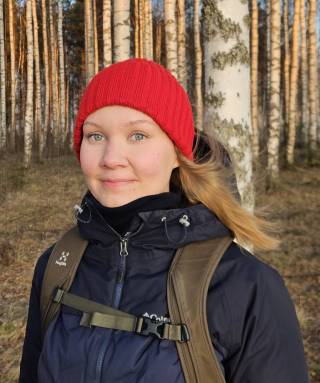
Laura Ronkainen
laura.s.ronkainen(at)tuni.fi
Doctoral Researcher | Faculty of Education and Culture | Tampere University
Current research project: Doctoral research focused on controversial environmental issues, planetary social-ecological worldview and eco-social Bildung in Finnish lower secondary subject teaching
“I am a subject teacher in biology, geography and French. In my research I am especially interested in examining how environmental education is executed in practice in formal education and what kinds of challenges, tensions and overall traits this includes. Accordingly, the aim of my research is to study the prerequisites of education furthering sustainability transformation. I am a member of the Interdisciplinary Research Network for Environmental and Sustainability Education SIRENE.”
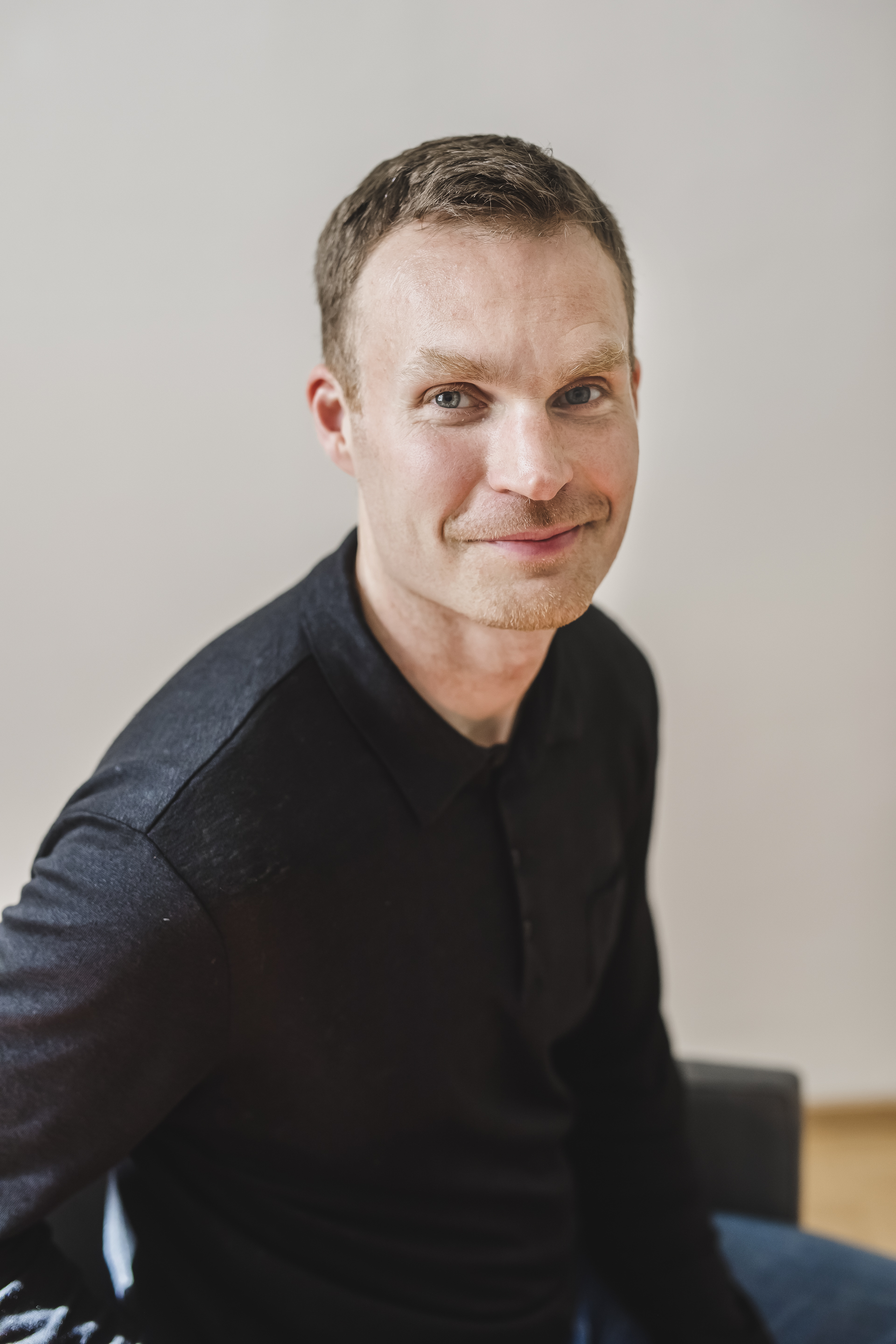 Sami Keto
Sami Keto
sami.keto(at)tuni.fi
Doctoral Researcher | Faculty of Education and Culture | Tampere University
Current research project: PhD on ecosocial education (Maj and Tor Nessling Foundation 2020-2024)
“I am interested in how anthropocentrism can be overcome in education. My PhD work contributes to the formation of the philosophy and practices of ecosocial education, where my closest collaborators are Raisa Foster and Jani Pulkki. I am also involved in e.g. Sustainable well-being (UEF) and Microbial Childhood research groups. In addition to dissertation research, I’m a non-fiction writer, and my latest book Enemmän kuin sapiens – kasvu elonkirjon jäseneksi is related to the topic of my dissertation.”
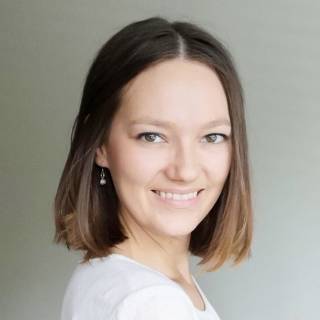 Anette Mansikka-Aho
Anette Mansikka-Aho
anette.mansikka-aho(at)tuni.fi
Doctoral Researcher | Faculty of Education and Culture | Tampere University
Current and recent research projects: Challenging the Climate Crisis: Children’s Agency to Tackle Policy Underpinned by Learning for Transformation (CCC-CATAPULT)
“My key interests in research are in the field of climate education, especially the intergenerational aspects around this phenomena. I am currently working in the CCC-CATAPULT project, which is an European consortium. The project involves young people as researchers working with academics to examine young people’s experiences of and learning around the climate crisis. My responsibility in the project is to coordinate the youth group in a Finnish location. In the consortium I am writing my dissertation. In my dissertation I focus on challenging the universal educational relationship between the generations, where traditionally the older generation teaches the younger generation. I am also a member of POISED – Political Philosophies and Sociologies of Education research group.”
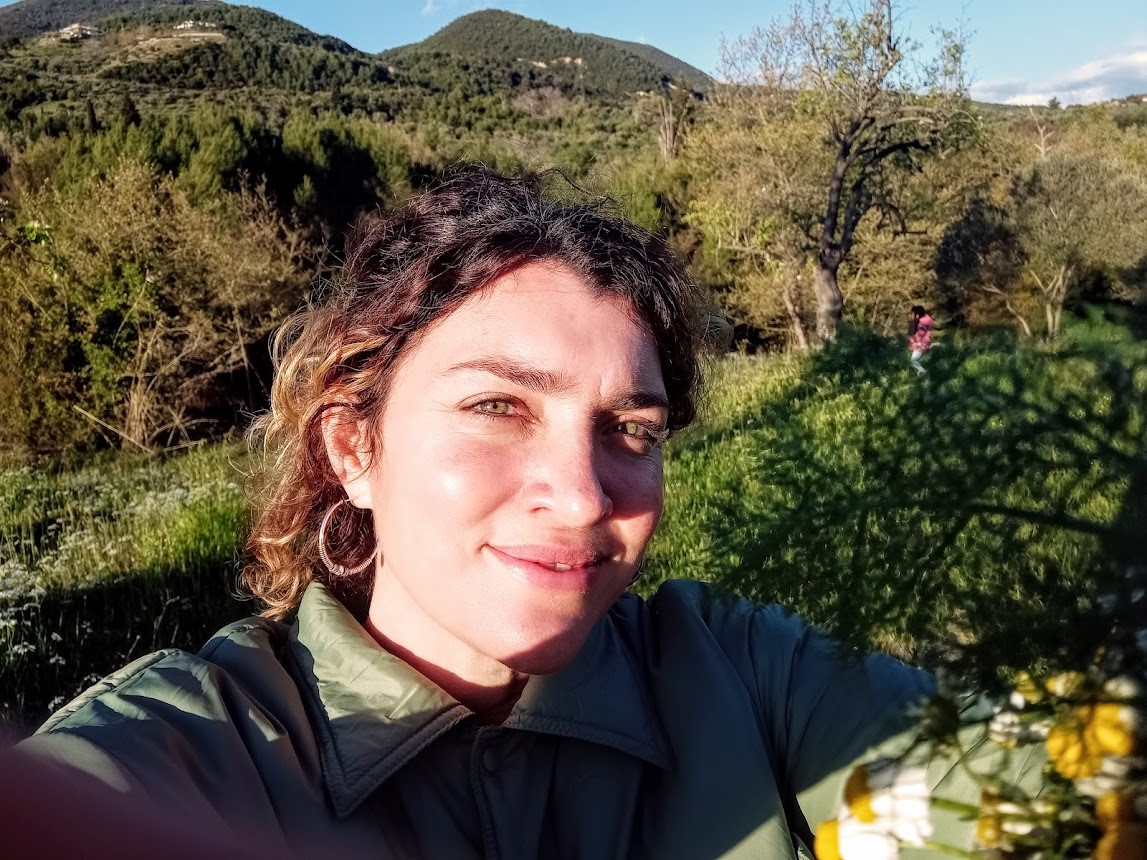 Nefeli Bami
Nefeli Bami
nefniki(at)yahoo.gr
Research Assistant | Faculty of Education and Culture | Tampere University
Current research project: The Civic Potential of Climate Mobility (HUMANE–CLIMATE)
“I am a social anthropologist sharing my professional life between humanitarian work and academic research. I have worked with several organizations in refugee camps in Greece on the field of community based protection and in grassroots projects with adults and children of refugee background. My main research areas are humanitarian bordering, intercultural encounters,humanitarian mediation, processes of community building, intercultural education and art therapy.”
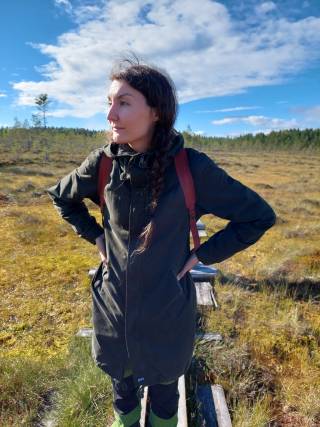 Maria Sulonen
Maria Sulonen
maria.sulonen(at)tuni.fi
Research Assistant | Faculty of Education and Culture | Tampere University
Current research project: The Civic Potential of Climate Mobility (HUMANE–CLIMATE), The Politics of Embodied Encounters in Asylum Seeking (POEMS)
“My key interests in the field of environmental education are arts-based climate education, the role of emotions in climate education and climate agency and activism among children and young people. At the moment I’m working as a Research Assistant in HUMANE-CLIMATE- research. My work assignments contain analyzing school teaching materials, going through EU and IPCC reports and doing preparatory work for future research use and updating the SPECS website. In addition, I’m working as an inter-coder in POEMS project.”
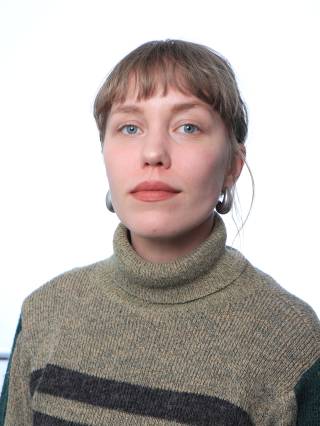 Tiia-Mari Tervaharju
Tiia-Mari Tervaharju
tiia-mari.tervaharju(at)tuni.fi
Doctoral Researcher | Faculty of Education and Culture | Tampere University
Current research project: PhD on planetary citizenship and critical environmental education in ECE, The Civic Potential of Climate Mobility (HUMANE–CLIMATE)
“I am an early childhood education teacher and doctoral researcher in Tampere university. In my PhD research, I study the multifaceted environmental relations and political imagination of small children in the context of planetary citizenship education in ECE. I approach these themes using utopian methodology. Previously I have worked as a research assistant in HUMANE CLIMATE -research (Tuni) and as a project researcher in At the Margins of the Sustainability Transformation -research (UEF). In the broad field of environmental and sustainability education I am particularly interested to study environmental agency of small children and the questions of positioning ECE within the context of climate emergency.”
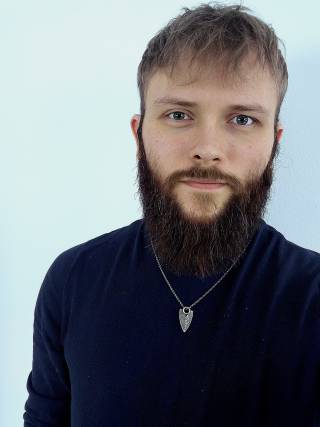
Juuso Tarkka
juuso.tarkka(at)tuni.fi
Research Assistant | Faculty of Education and Culture | Tampere University
Current research project: The Civic Potential of Climate Mobility (HUMANE–CLIMATE)
“I am a Master of Education, a class teacher, and history teacher. I currently work as a research assistant in the HUMANE-CLIMATE project, where my tasks include developing research-based teaching materials based on the project and updating the SPECS website. As a researcher, I am particularly interested in issues of political agency and emotions related to teaching global challenges from the perspectives of environmental, media, and civic education. Currently, I approach the subject through migration linked to climate change. My educational philosophy draws on critical, Socratic, and decolonial pedagogy.”
